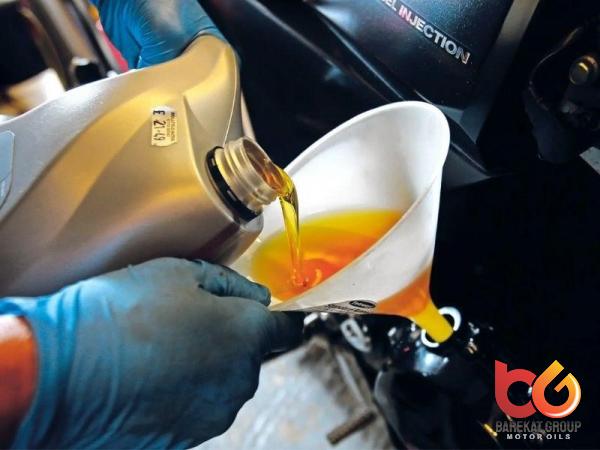A Comprehensive Comparison of 3 Types of Engine Oil Engine oil plays a crucial role in ensuring the smooth operation and longevity of an engine. With numerous options available in the market, it can be challenging to know which type of engine oil is best suited for your vehicle. In this summary, we will compare and contrast three popular types of engine oil: conventional, synthetic, and synthetic blend. 1. Conventional Engine Oil: Conventional engine oil, also known as mineral oil, is the most basic and traditional type of engine oil. It is derived from crude oil through a refining process, where impurities are removed. Conventional engine oil contains a mix of base oils and additives to enhance its performance and protect the engine. Pros: – Affordability: Conventional engine oil is generally the least expensive option, making it the choice for budget-conscious vehicle owners. – Availability: Conventional oil can be found at almost any automotive store, making it easily accessible. – Compatibility: It is suitable for older vehicles or those with low mileage, as it generally meets the requirements of most car manufacturers. – Adequate protection: While it may not provide the same level of protection as synthetic oils, conventional oil is still capable of lubricating engine components and reducing wear. Cons: – Lower performance: Conventional oil tends to break down faster under high temperatures, reducing its overall performance. – Reduced longevity: Due to its lower resistance to oxidation, conventional oil may require more frequent oil changes compared to synthetic oils. 2. Synthetic Engine Oil: Synthetic engine oil is a man-made product created through a process called synthesizing. It is formulated to have superior performance characteristics compared to conventional oil. Synthetic oil is designed to provide better protection and enhance engine performance, even under extreme conditions. Pros: – Improved engine performance: Synthetic oil has better lubricating properties, allowing engines to operate more smoothly, resulting in increased horsepower and fuel efficiency. – Enhanced engine protection: Synthetic oil offers better resistance to thermal breakdown, which contributes to reduced wear and prolonged engine life.
Engine oil
 – Consistency: Synthetic oil maintains its viscosity and lubrication properties over a wider temperature range, ensuring optimal engine protection in diverse climates. – Longevity: Synthetic oil has a longer lifespan compared to conventional oil, resulting in fewer oil changes. This factor also reduces the overall maintenance cost. Cons: – Cost: Synthetic oil is generally more expensive than conventional oil due to its complex manufacturing process and superior properties. – Compatibility: Some older vehicles or models with high mileage may not be compatible with synthetic oil. It is crucial to check the vehicle manufacturer’s recommendations before making the switch. – Oil leaks: Due to its composition, synthetic oil may potentially cause oil leaks in older engines due to its ability to clean deposits and seal leaks. Consult a professional mechanic if unsure. 3. Synthetic Blend Engine Oil: A synthetic blend engine oil, as the name suggests, is a mixture of conventional and synthetic oils. This blend combines the advantages of both types, providing a cost-effective alternative for drivers seeking some of the benefits of synthetic oil without the higher price tag. Pros: – Cost-effective: Synthetic blends are more affordable than full synthetic oils, making them an attractive option for those who want some of the performance enhancements without breaking the bank. – Better protection: Synthetic blend oil offers improved protection over conventional oil, reducing engine wear and increasing longevity. – Versatility: Synthetic blends are compatible with a wide range of vehicles, making them a suitable choice for many drivers. Cons: – Limited performance: While synthetic blend oil offers better protection than conventional oil, it does not provide the same level of performance as full synthetic oil. – Oil change intervals: Synthetic blend oil still requires more frequent oil changes compared to full synthetic oil due to the presence of conventional oil. Conclusion: In summary, choosing the right engine oil is essential for maintaining the health and optimal performance of your engine. Conventional engine oil is a cost-effective choice for older or low-mileage vehicles, while synthetic oil offers better protection and performance under extreme conditions. Synthetic blend oil provides a middle ground between the two options, offering enhanced performance at a more affordable price point. Ultimately, the choice of engine oil depends on factors such as the vehicle’s age, mileage, driving conditions, and manufacturer’s recommendations.Title: A Comprehensive Comparison of Conventional, Synthetic, and Synthetic Blend Engine Oils Introduction: Choosing the right engine oil is a crucial decision for vehicle owners, as it directly impacts the performance, longevity, and maintenance of the engine.
– Consistency: Synthetic oil maintains its viscosity and lubrication properties over a wider temperature range, ensuring optimal engine protection in diverse climates. – Longevity: Synthetic oil has a longer lifespan compared to conventional oil, resulting in fewer oil changes. This factor also reduces the overall maintenance cost. Cons: – Cost: Synthetic oil is generally more expensive than conventional oil due to its complex manufacturing process and superior properties. – Compatibility: Some older vehicles or models with high mileage may not be compatible with synthetic oil. It is crucial to check the vehicle manufacturer’s recommendations before making the switch. – Oil leaks: Due to its composition, synthetic oil may potentially cause oil leaks in older engines due to its ability to clean deposits and seal leaks. Consult a professional mechanic if unsure. 3. Synthetic Blend Engine Oil: A synthetic blend engine oil, as the name suggests, is a mixture of conventional and synthetic oils. This blend combines the advantages of both types, providing a cost-effective alternative for drivers seeking some of the benefits of synthetic oil without the higher price tag. Pros: – Cost-effective: Synthetic blends are more affordable than full synthetic oils, making them an attractive option for those who want some of the performance enhancements without breaking the bank. – Better protection: Synthetic blend oil offers improved protection over conventional oil, reducing engine wear and increasing longevity. – Versatility: Synthetic blends are compatible with a wide range of vehicles, making them a suitable choice for many drivers. Cons: – Limited performance: While synthetic blend oil offers better protection than conventional oil, it does not provide the same level of performance as full synthetic oil. – Oil change intervals: Synthetic blend oil still requires more frequent oil changes compared to full synthetic oil due to the presence of conventional oil. Conclusion: In summary, choosing the right engine oil is essential for maintaining the health and optimal performance of your engine. Conventional engine oil is a cost-effective choice for older or low-mileage vehicles, while synthetic oil offers better protection and performance under extreme conditions. Synthetic blend oil provides a middle ground between the two options, offering enhanced performance at a more affordable price point. Ultimately, the choice of engine oil depends on factors such as the vehicle’s age, mileage, driving conditions, and manufacturer’s recommendations.Title: A Comprehensive Comparison of Conventional, Synthetic, and Synthetic Blend Engine Oils Introduction: Choosing the right engine oil is a crucial decision for vehicle owners, as it directly impacts the performance, longevity, and maintenance of the engine.
Specifications of Engine oil
 With a plethora of options available in the market, understanding the differences between conventional, synthetic, and synthetic blend engine oils is essential. In this article, we will delve deeper into each type, examining their properties, benefits, drawbacks, and usage to help you make an informed decision regarding which engine oil is best suited for your needs. 1. Conventional Engine Oil: Conventional engine oil, also known as mineral oil, is derived from crude oil through a refining process. It is the most basic and traditional type of engine oil. Conventional oil contains a mix of base oils and additives to provide lubrication and protection to engine components. Properties: Conventional oil has a high viscosity index, which means that it maintains its thickness under varied temperatures. It offers adequate lubrication and reduces wear and tear on the engine’s moving parts. Benefits: – Affordability: Conventional oil is typically the most affordable option, making it suitable for budget-conscious individuals. – Compatibility: It meets the requirements of most car manufacturers, making it suitable for older vehicles or those with low mileage. – Availability: Conventional oil is readily available at automotive stores, making it easily accessible for consumers. Drawbacks: – Performance limitations: Conventional oil tends to break down faster under high temperatures, reducing its overall performance. – Reduced longevity: Its lower resistance to oxidation often necessitates more frequent oil changes compared to synthetic oils. Usage: Conventional oil is suitable for vehicles with low mileage or older models. It is a cost-effective choice for individuals who prioritize affordability over performance enhancements. 2. Synthetic Engine Oil: Synthetic engine oil is a man-made product that undergoes a complex synthesizing process.
With a plethora of options available in the market, understanding the differences between conventional, synthetic, and synthetic blend engine oils is essential. In this article, we will delve deeper into each type, examining their properties, benefits, drawbacks, and usage to help you make an informed decision regarding which engine oil is best suited for your needs. 1. Conventional Engine Oil: Conventional engine oil, also known as mineral oil, is derived from crude oil through a refining process. It is the most basic and traditional type of engine oil. Conventional oil contains a mix of base oils and additives to provide lubrication and protection to engine components. Properties: Conventional oil has a high viscosity index, which means that it maintains its thickness under varied temperatures. It offers adequate lubrication and reduces wear and tear on the engine’s moving parts. Benefits: – Affordability: Conventional oil is typically the most affordable option, making it suitable for budget-conscious individuals. – Compatibility: It meets the requirements of most car manufacturers, making it suitable for older vehicles or those with low mileage. – Availability: Conventional oil is readily available at automotive stores, making it easily accessible for consumers. Drawbacks: – Performance limitations: Conventional oil tends to break down faster under high temperatures, reducing its overall performance. – Reduced longevity: Its lower resistance to oxidation often necessitates more frequent oil changes compared to synthetic oils. Usage: Conventional oil is suitable for vehicles with low mileage or older models. It is a cost-effective choice for individuals who prioritize affordability over performance enhancements. 2. Synthetic Engine Oil: Synthetic engine oil is a man-made product that undergoes a complex synthesizing process.
Buy Engine oil
 It is designed to outperform conventional oil, providing superior protection and enhancing engine performance, even under extreme conditions. Properties: Synthetic oil has a more uniform molecular structure, offering enhanced lubricating properties. It also has a high viscosity index and maintains its viscosity across a wider temperature range, ensuring optimal engine protection. Benefits: – Improved engine performance: Synthetic oil’s superior lubricating properties allow engines to operate more smoothly, resulting in increased horsepower and improved fuel efficiency. – Excellent engine protection: Synthetic oil offers better resistance to thermal breakdown, reducing wear and prolonging the engine’s life. – Consistency: It maintains its viscosity and lubrication properties over a wider temperature range, ensuring optimal engine protection in diverse climates. – Longevity: Synthetic oil has a longer lifespan than conventional oil, reducing the frequency of oil changes and overall maintenance cost. Drawbacks: – Cost: Synthetic oil is generally more expensive due to its complex manufacturing process and superior properties. – Compatibility issues: Older vehicles or models with high mileage may not be compatible with synthetic oil. It is essential to refer to the vehicle manufacturer’s recommendations before making the switch. – Potential oil leaks: Synthetic oil’s cleaning properties may expose pre-existing leaks in older engines. Consulting a professional mechanic is recommended if any reservations arise. Usage: Synthetic oil is recommended for newer vehicles, high-performance engines, or engines subjected to extreme conditions. It provides superior protection and improved performance, making it ideal for those seeking optimal engine performance. 3. Synthetic Blend Engine Oil: Synthetic blend engine oil, as the name suggests, is a mixture of conventional and synthetic oils. It combines some of the benefits of synthetic oil with the cost-effectiveness of conventional oil.
It is designed to outperform conventional oil, providing superior protection and enhancing engine performance, even under extreme conditions. Properties: Synthetic oil has a more uniform molecular structure, offering enhanced lubricating properties. It also has a high viscosity index and maintains its viscosity across a wider temperature range, ensuring optimal engine protection. Benefits: – Improved engine performance: Synthetic oil’s superior lubricating properties allow engines to operate more smoothly, resulting in increased horsepower and improved fuel efficiency. – Excellent engine protection: Synthetic oil offers better resistance to thermal breakdown, reducing wear and prolonging the engine’s life. – Consistency: It maintains its viscosity and lubrication properties over a wider temperature range, ensuring optimal engine protection in diverse climates. – Longevity: Synthetic oil has a longer lifespan than conventional oil, reducing the frequency of oil changes and overall maintenance cost. Drawbacks: – Cost: Synthetic oil is generally more expensive due to its complex manufacturing process and superior properties. – Compatibility issues: Older vehicles or models with high mileage may not be compatible with synthetic oil. It is essential to refer to the vehicle manufacturer’s recommendations before making the switch. – Potential oil leaks: Synthetic oil’s cleaning properties may expose pre-existing leaks in older engines. Consulting a professional mechanic is recommended if any reservations arise. Usage: Synthetic oil is recommended for newer vehicles, high-performance engines, or engines subjected to extreme conditions. It provides superior protection and improved performance, making it ideal for those seeking optimal engine performance. 3. Synthetic Blend Engine Oil: Synthetic blend engine oil, as the name suggests, is a mixture of conventional and synthetic oils. It combines some of the benefits of synthetic oil with the cost-effectiveness of conventional oil.
Engine oil + buy and sell
 Properties: Synthetic blend oil offers a combination of conventional and synthetic oils’ properties, providing better protection and performance compared to conventional oil. Benefits: – Cost-effectiveness: Synthetic blend oil offers improved performance over conventional oil at a more affordable price point compared to full synthetic oil. – Engine protection: Synthetic blend oil reduces engine wear, increases longevity, and offers better protection than conventional oil. – Versatility: Synthetic blend oil is compatible with a wide range of vehicles, making it a suitable choice for various drivers. Drawbacks: – Limited performance: Although synthetic blend oil provides better protection than conventional oil, it does not offer the same level of performance as full synthetic oil. – Oil change intervals: Synthetic blend oil still requires more frequent oil changes compared to full synthetic oil due to the presence of conventional oil. Usage: Synthetic blend oil is an excellent choice for individuals seeking a middle ground between conventional and synthetic oils. It offers improved performance and better protection at a more affordable price, making it suitable for a wide range of vehicles. Conclusion: Choosing the right engine oil is vital to ensure the smooth operation and longevity of your vehicle’s engine. Each type of engine oil – conventional, synthetic, and synthetic blend – has its own unique properties, benefits, and drawbacks. By understanding these differences, you can select the most suitable engine oil for your vehicle based on its age, mileage, driving conditions, and manufacturer’s recommendations. Always consult with a professional mechanic if you’re uncertain about which oil is best for your vehicle. By making an informed decision regarding engine oil, you can optimize engine performance, reduce maintenance costs, and extend the lifespan of your vehicle’s engine.
Properties: Synthetic blend oil offers a combination of conventional and synthetic oils’ properties, providing better protection and performance compared to conventional oil. Benefits: – Cost-effectiveness: Synthetic blend oil offers improved performance over conventional oil at a more affordable price point compared to full synthetic oil. – Engine protection: Synthetic blend oil reduces engine wear, increases longevity, and offers better protection than conventional oil. – Versatility: Synthetic blend oil is compatible with a wide range of vehicles, making it a suitable choice for various drivers. Drawbacks: – Limited performance: Although synthetic blend oil provides better protection than conventional oil, it does not offer the same level of performance as full synthetic oil. – Oil change intervals: Synthetic blend oil still requires more frequent oil changes compared to full synthetic oil due to the presence of conventional oil. Usage: Synthetic blend oil is an excellent choice for individuals seeking a middle ground between conventional and synthetic oils. It offers improved performance and better protection at a more affordable price, making it suitable for a wide range of vehicles. Conclusion: Choosing the right engine oil is vital to ensure the smooth operation and longevity of your vehicle’s engine. Each type of engine oil – conventional, synthetic, and synthetic blend – has its own unique properties, benefits, and drawbacks. By understanding these differences, you can select the most suitable engine oil for your vehicle based on its age, mileage, driving conditions, and manufacturer’s recommendations. Always consult with a professional mechanic if you’re uncertain about which oil is best for your vehicle. By making an informed decision regarding engine oil, you can optimize engine performance, reduce maintenance costs, and extend the lifespan of your vehicle’s engine.
Your comment submitted.